Draconian Tory bills will deliver a dystopian Britain
Behind the boozy garden-party headlines, a far more sinister game is afoot. Some chilling legislation has been making its way through parliament, designed to give the government authoritarian powers to strip Britons of basic freedoms. Steve Boggan reveals all

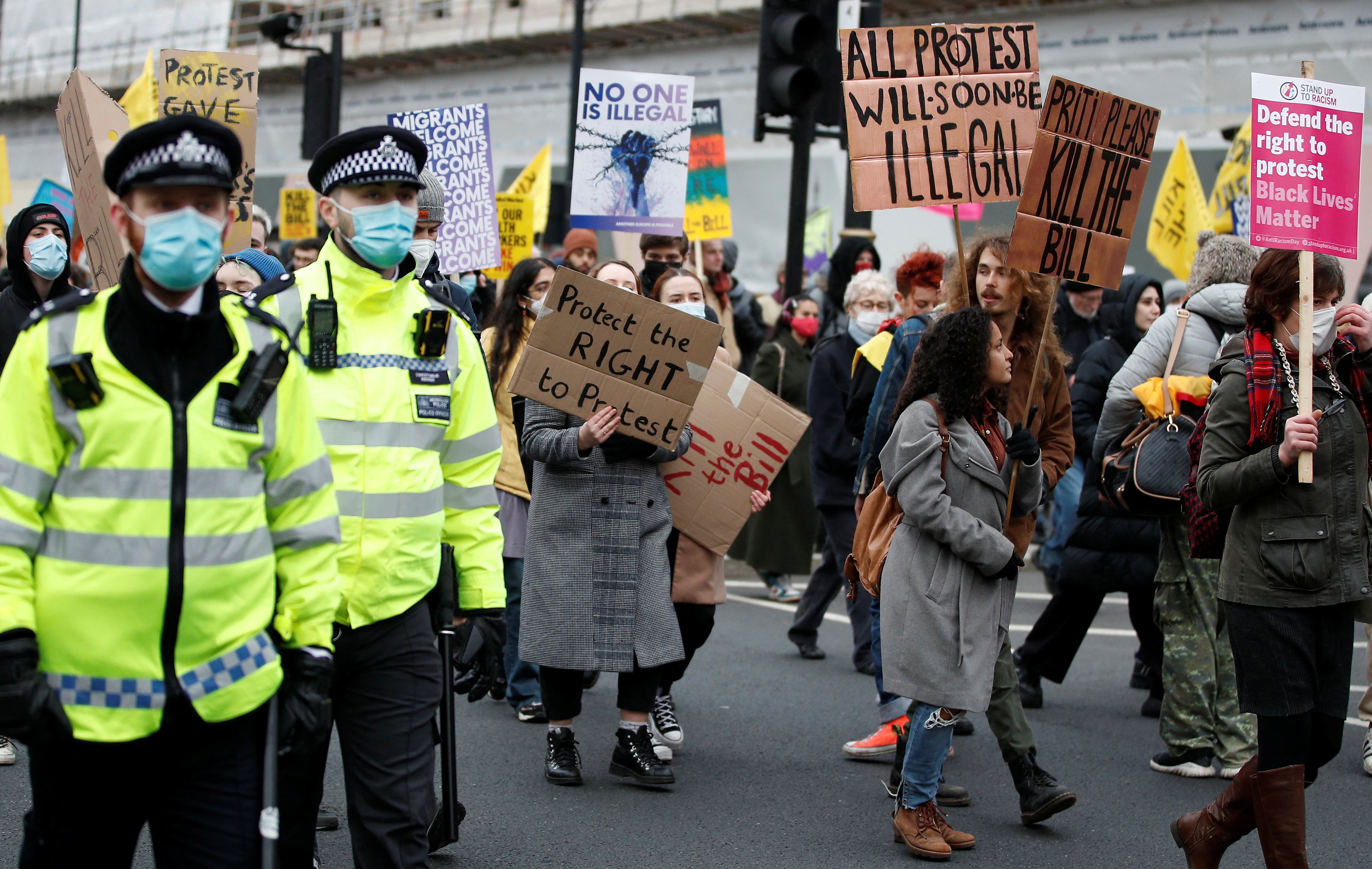
Imagine a country where protests could be limited in duration, location and noise – or banned altogether – on the whim of a police officer. Or where a person’s citizenship might be revoked in secret because their family happens to hail from another part of the world. Or where an individual could be stopped and searched because they ought to have known about something when, in fact, they knew nothing about it at all.
And how about a regime that gives its officials permission to put the lives of illegal immigrants at risk, promising not to prosecute them if their actions result in men, women and children dying?
No, this isn’t some dystopian world created by Franz Kafka. Nor is it one of the usual suspects: China, Russia or North Korea. All of these scenarios could – and in all likelihood will – happen in the UK in the next few months.
Thanks to a raft of sometimes chilling legislation passing through parliament, cherished rights and values that we have taken for granted for generations are coming under threat because of populist policies that will put more and more power into the hands of the state and the police – in some cases, giving the police new powers that they don’t need, or even want.
In spite of one of these pieces of legislation – the Police, Crime, Sentencing and Courts Bill – suffering a temporary setback on Monday night in the House of Lords, the Johnson government has declared its commitment to enshrining all of them in law and turning Britain into what some parliamentarians have described as something akin to a police state.
“It’s no coincidence all these bills are going through at the same time,” says Sam Grant, head of policy and campaigns at civil rights group Liberty. “It’s part of a wider, deliberate power grab from those in government to change the rules so only they can win.
“We’ve seen time and time again over the past few years that when the law disagrees with the government, the government tries to change the law. What all these bills have in common is that they put significantly more power in the hands of ministers at the expense of the public, the courts and even the rest of parliament.”
So, what is all this legislation and what could it mean for you, your family and friends?
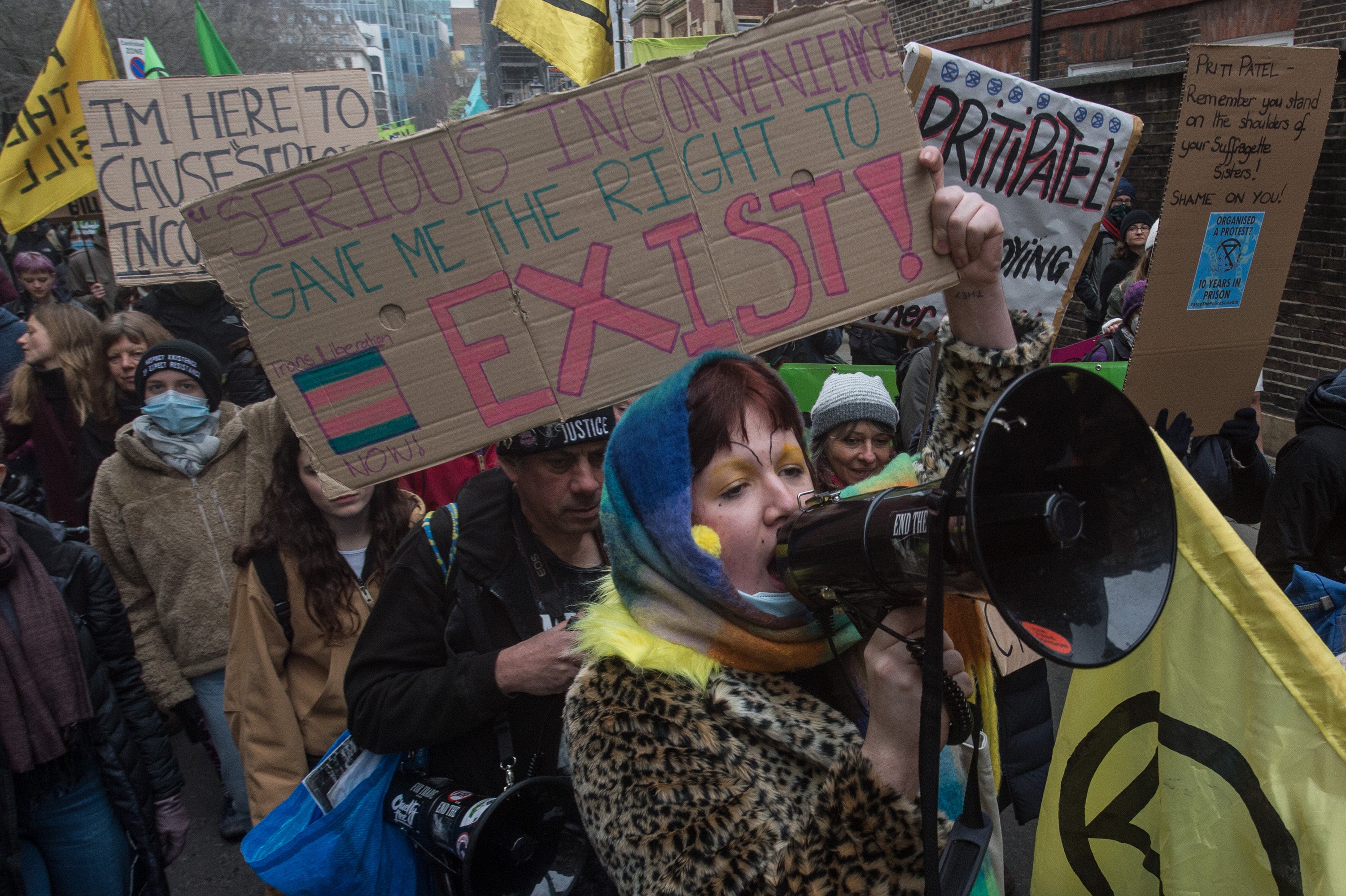
Aside from troubling human rights reforms yet to be formally introduced (more of which later), there are three bills, all at different stages of the legislative process; the Police, Crime, Sentencing and Courts Bill, the Nationality and Borders Bill and the Elections Bill. Each is causing consternation in its own way but it is the first of these that has attracted most criticism and already caused widespread protest up and down the country, most notably in Bristol, but also in London, Newcastle, Liverpool, Luton, Weymouth and Brighton.
The Police, Crime, Sentencing and Courts (PCSC) Bill, introduced by the former Lord Chancellor Robert Buckland and sponsored by the Home Secretary Priti Patel, was born controversially and has grown in controversy ever since. Running to 307 pages and covering vast areas of policing and the law, it was published on a Tuesday last March and given its second reading the following Monday, affording parliamentarians little time to digest it or marshal informed opposition to it.
There are many aspects of the bill that are ringing alarm bells, but those ringing loudest involve sweeping changes to laws that will affect the right to assembly and protest, that will elevate trespass from a civil to a criminal matter – criminalising the way of life of travellers, Roma and Gypsies – and that will introduce new powers of stop and search that will enable the police to target people without having the slightest reasonable grounds to do so.
The bill provides for wide exclusion zones around parliament, ostensibly to protect politicians, but more likely so that they cannot hear the objections of pesky demonstrators
Several aspects of the bill were defeated in the House of Lords on Monday but within hours, when asked whether the government would re-introduce them for a final vote in the Commons, probably next month, the Justice Secretary Dominic Raab told BBC Radio 4’s Today programme: “We’ll look very carefully at all of that but, yes, absolutely.
“In relation to noise, of course we support the right of peaceful and rambunctious protest, but it cannot be allowed to interfere with the lives of the law-abiding majority.”
The police already have powers to restrict and control protests under the Public Order Act 1986 and the Harassment Act 1997. But they can impose such restrictions only where they can demonstrate that a protest could cause “serious public disorder” or cause “serious damage to property” or disproportionately disrupt a community.
However, the PCSC Bill goes much further than the existing powers by criminalising “serious annoyance”, setting down when protests may start and finish, putting limits on how loud they can be and giving the Home Secretary discretion over what kinds of demonstrations should be allowed in the first place. It also makes locking oneself to another person or object (say, by gluing oneself to the road or a train) an offence, and allows the police to stop and search people if they think they might be planning to do this - which could open you up to arrest if you are carrying glue or a bike lock. The offence of “locking on” is punishable by up to 51 weeks in prison, though because this provision was introduced at the last minute, and so debated only by the Lords, there are hopes that it will die with Monday night’s rejection.
If your protest is too noisy or causing too much annoyance to the offices of, say, a business or organisation (perhaps a fracking company, an arms fair, a multinational corporation planning to destroy a rain forest, or the HQ of a political party introducing draconian laws with which you passionately disagree), the bill provides grounds to shut it down – regardless of the fact that only noisy and annoying protest ever achieved anything.
Remember the controversy caused last year when police arrested and handcuffed women at a London vigil for Sarah Everard, who had been kidnapped and murdered by a police officer? Police were able to act then because of emergency laws on assembly introduced as a result of the Covid-19 pandemic. But if the PCSC Bill is passed, they wouldn’t need such emergency powers; a senior officer would simply have to decide that the women were being too annoying or noisy.
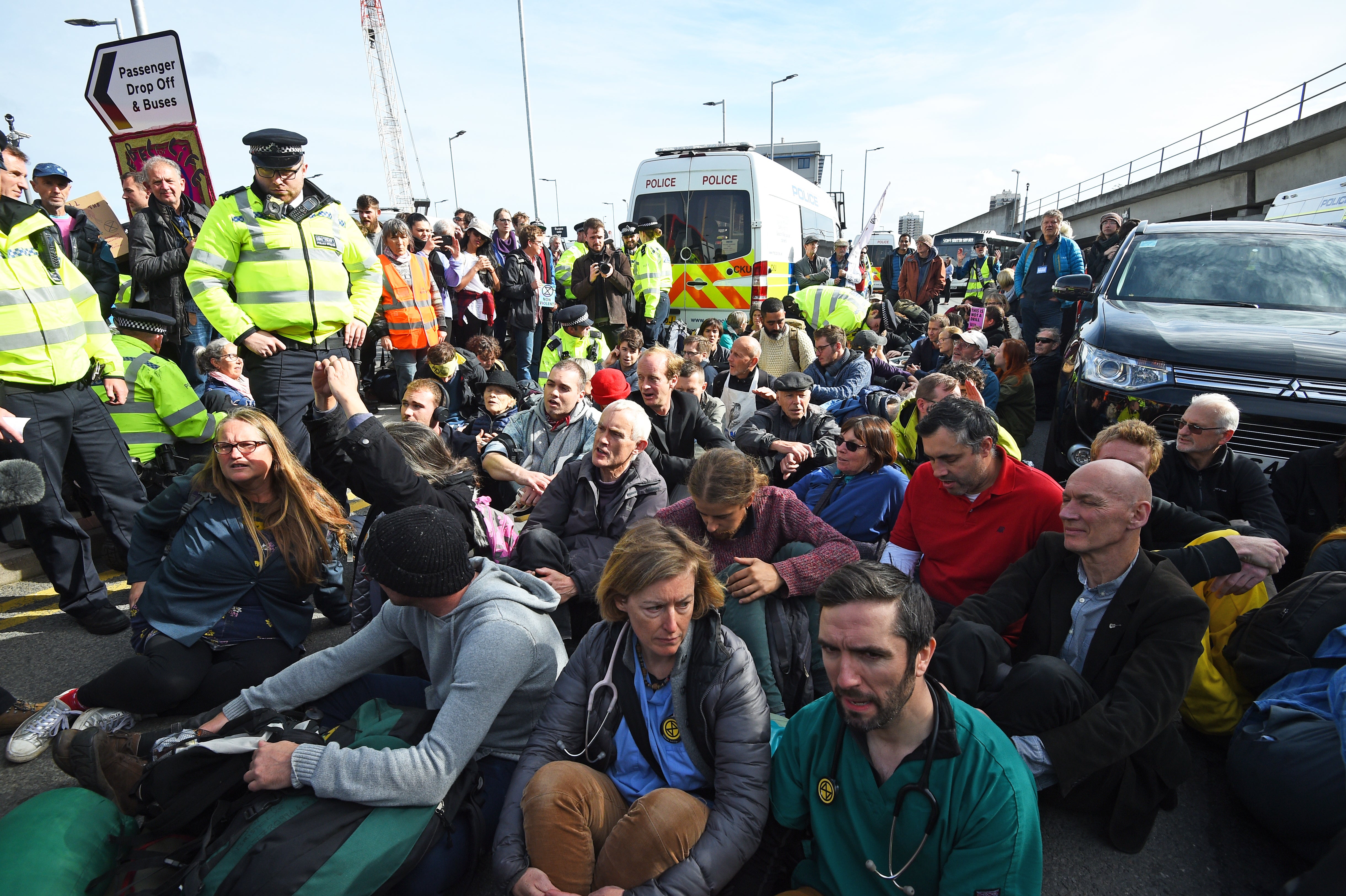
On Monday night, peers backed, by 261 votes to 166, a majority of 95, a Labour-amendment that scraps the power to impose conditions on protest marches judged to be too noisy.
Among 14 proposed changes to the bill (all of which Mr Raab threatened to overturn), they also voted by 242 votes to 185 to give power to the courts to treat misogyny as an aggravating factor in any crime and increase sentences accordingly. However, Mr Raab, who is also the Deputy Prime Minister, said he would reverse the amendment because it was “counter-productive”.
The PSC Bill provides for wide exclusion zones around parliament, ostensibly to protect politicians, but more likely so that they cannot hear the objections of pesky demonstrators.
Astonishingly, it even targets one-person demonstrations where a senior officer “reasonably believes that the noise generated by the person carrying on the protest may result in serious disruption to the activities of an organisation which are carried on in the vicinity of the protest, or that the noise generated by the person carrying on the protest may have a relevant impact on persons in the vicinity of the protest”.
It defines “a senior police officer” as the most senior officer at the scene, which might be a PC. Where a one-person demonstrator fails to adhere to conditions imposed upon him or her, they could face up to 51 weeks in prison. And if you don’t think that is terrifying, then how about this? Where a person “intentionally or recklessly” organises a protest that causes “serious annoyance, serious inconvenience or serious loss of amenity” to the target of their ire or someone caught up in it, they could be jailed for up to 10 years.
Of course, much of this has been given wings by the genuine annoyance felt by many motorists and commuters over Extinction Rebellion and Insulate Britain protests – despite the fact that the police already had powers to deal with those demonstrations. They don’t need any more.
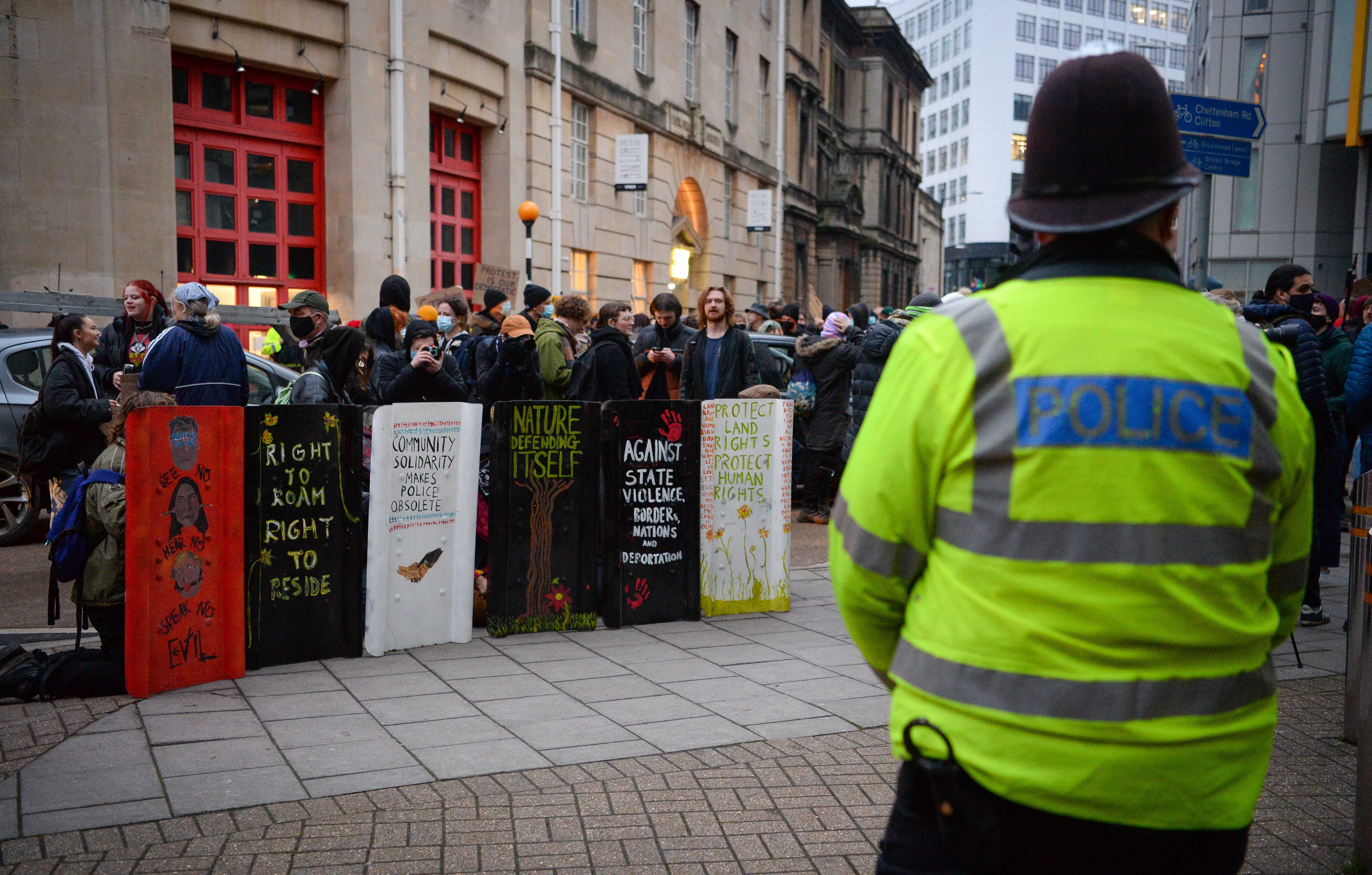
Last June, a report by the House of Commons and House of Lords Joint Committee on Human Rights, was highly critical of the proposed legislation, arguing that clauses in the bill that enabled restrictions on protests on the grounds of noise, that created powers to limit one-person demonstrations, and which increased penalties on those who breached conditions imposed on protests (whether they knew about those conditions or not) should all be scrapped.
The committee said it would be “unacceptable” to allow the Home Secretary to define “serious disruption”, a definition that police could then use to determine protests as “unacceptable”.
Their report added: “If there is a particular clarification of ‘serious disruption’ that the Home Office considers is currently needed, perhaps as a result of the Extinction Rebellion protests of 2019, it should be made clear now so that it can be considered while the bill is being scrutinised. If no need for particular clarification has yet been identified, then we struggle to see how the powers contained in the PCSC Bill can be considered necessary.”
Harriet Harman, the committee chairwoman, said: “One of our most fundamental rights is to protest. It is the essence of our democracy. To do that, we need to make ourselves heard. The government proposals to allow police to restrict ‘noisy’ protests are oppressive and wrong. The government put forward new powers in areas where the police already have access to powers and offences which are perfectly adequate. The government has served up confusion where clarity and precision are essential.”
A 10-year prison sentence for protesting should be no cause for celebration. In the 21st century, it is a sentence more suited to a shamelessly authoritarian state
Liberty’s Sam Grant says the bill is “an attempt to make the very act of protest potentially criminal. When the government first presented the PCSC Bill, it was already absurd, with powers that criminalise ‘noisy’ protests or demonstrations that cause ‘serious disruption’. Protest is by its nature noisy and disruptive, it’s one of the only ways a lot of people can get their voices heard.
“The focus on criminalising demonstrators means that protest becomes the domain only of those willing to risk prison or large fines to speak out for what they believe in, and making it much harder for all of us to hold the government accountable for its actions.”
After the bill’s second reading last March, Priti Patel and the former Lord Chancellor Robert Buckland wrote an open letter to Labour MPs David Lammy and Nick Thomas-Symonds, defending it and arguing that noisy and annoying protests would not necessarily be banned.
“The police will only be able to impose conditions on unjustifiably noisy protests that cause harm to others or prevent an organisation from operating,” they wrote. “This threshold is appropriately high; the majority of protests in England and Wales do not cause serious disruption to the activities of an organisation or a significant impact on the people in the vicinity of the protest so will be unaffected by this legislation. This power will only limit the most extreme cases where the noise from protests is unjustifiable.”
And as for annoyance, the ministers said: “Many members raised concerns that [the bill] would criminalise protests which are ‘annoying’. This is consistent with the existing common law offence of public nuisance and does not connote merely feeling annoyed. The term ‘annoyance’ has been applied to allowing a field to be used for holding an all-night rave; conspiring to switch off the floodlights at a football match so as to cause it to be abandoned; and noise, dirt, fumes, noxious smells and vibrations. The clause has been drafted in line with the Law Commission’s recommendations and in doing so we have reduced the scope of offence. This has been achieved by increasing the fault element from negligence to intention or recklessness; reducing the maximum custodial sentence to 10-years; and including the caveat of ‘serious’ to the harms.”
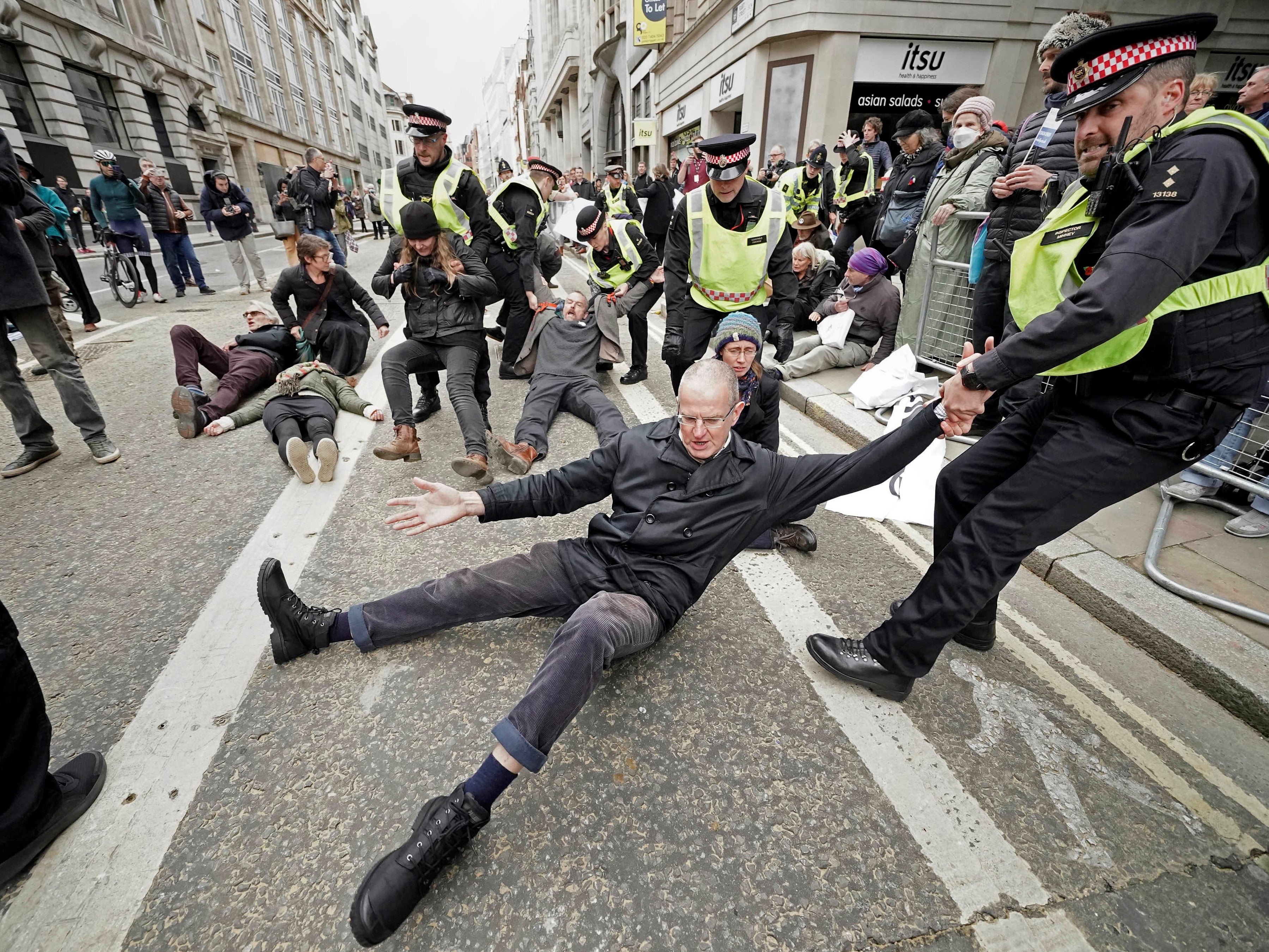
Much of this is vague and subjective. And the reference to the maximum custodial sentence being “reduced to 10 years” is a distraction; it would be reduced from a centuries-old common law maximum sentence of life imprisonment. A 10-year prison sentence for protesting should be no cause for celebration. In the 21st century, it is a sentence more suited to a shamelessly authoritarian state than a modern western democracy.
But the PCSC Bill doesn’t stop at protest. Another of its cacophonous alarm bells relates to the introduction of “Serious Violence Reduction Orders” (SVRO). These orders could be imposed by courts upon offenders convicted of crimes where an offensive weapon was involved – or where “on the balance of probabilities” a knife or offensive weapon was used, even if none was found.
Once an SVRO has been imposed, the person to whom it applies can be stopped and searched at any time, in any public place, by a police officer without the need for reasonable grounds to suspect them of anything at all. The bill says the officer may use reasonable force to carry out the search.
The word “Kafkaesque” is over-used but it must surely apply to one of the bill’s provisions relating to the imposition of SVROs. It says that one may be slapped on a person even if they weren’t carrying an offensive weapon or even if there was no evidence that one was used. The court would simply have to be “satisfied on the balance of probabilities that a) a bladed article or offensive weapon was used by another person in the commission of the offence and the offender knew or ought to have known that this would be the case, or b) another person who committed the offence had a bladed article or offensive weapon with them when the offence was committed and the offender knew or ought to have known that this would be the case”.
How does one prove that one ought not to have known that someone else might, on the balance of probabilities, have been carrying a knife?
Anyone failing to submit to a search or to answer questions posed by an officer wanting to conduct an SVRO stop and search could be jailed for up to two years. And, of course, these new powers would inevitably impact the black community more than others. Research by University College London has found that black people are 19 times more likely to be stopped and searched than white people.
On top of the SVROs, the bill also introduces “Serious Disruption Prevention Orders”. According to Liberty, these “ can be imposed on people who have taken part in two or more protests in a five-year period either when they are convicted of a second protest-related offence or found in contempt of court for a protest-related breach of an injunction, or when the police apply to the Magistrates Court on the basis of an individual’s past actions, including if they have previously carried out activities related to a protest that could have resulted in serious disruption (even if they didn’t actually)”.
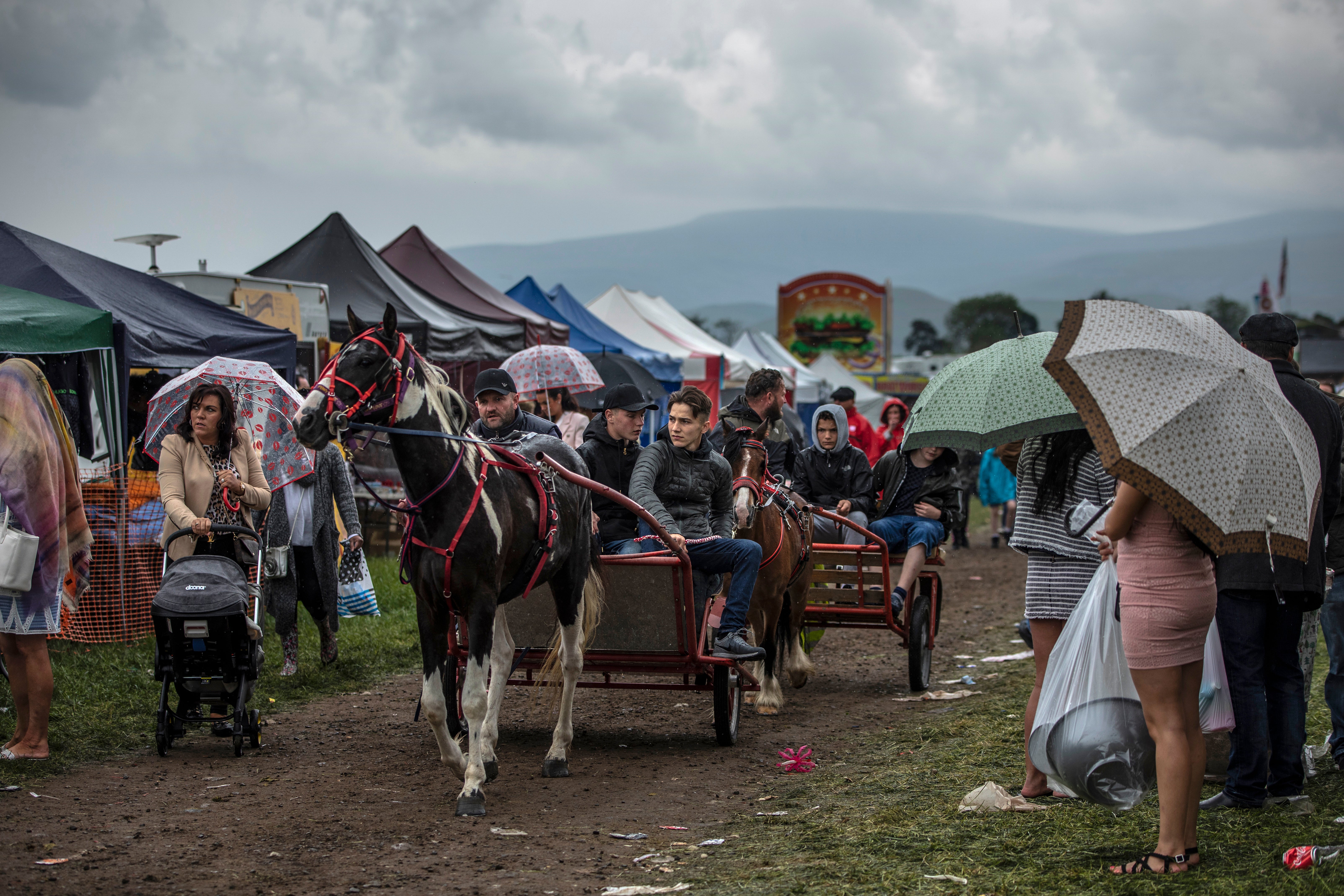
As well as the black community, which will be most likely to suffer SVRO stops and searches, the bill undermines the rights of other minorities, most notably Roma, Gypsy and Traveller communities, by elevating trespass from a civil to a criminal offence. Part four of the bill will enable the police to seize vehicles, including caravans, where they have been parked without consent.
This will be popular among some sections of the public where travelling communities are regarded as a nuisance – but it is manifestly unfair. The National Police Chiefs Council and the Association of Police and Crime Commissioners reported in 2019 that: “The lack of sufficient and appropriate accommodation for Gypsies and Travellers remains the main cause of incidents of unauthorised encampment and unauthorised development by these groups.”
Yet if nomadic communities have nowhere to go and so park where they shouldn’t, owners could be fined, imprisoned for up to three months or their homes could be seized under the new proposals. Families will inevitably be thrown on to the street.
Ms Patel is giving these powers to the police even though there is evidence to suggest they don’t want them. In 2019, the campaign group Friends, Families and Travellers, used Freedom of Information requests to find out what police forces had said during Home Office consultations into the type of crackdown now being proposed. The group found that 75 per cent of forces said their current powers were adequate; 84 per cent did not support the criminalisation of unauthorised traveller camps; and 65 per cent said the lack of sites for Travellers was the real problem.
If the Human Rights Act goes ... it will mark a further step in the government’s eager embrace of lawlessness, undermining the rights of all individuals, the effective role of British judges and the European court
Abbie Kirby, policy manager at Friends, Families and Travellers, said: “We have seen huge opposition to these proposals, not only from the police but from across society in recognition of the implications for human rights and civil liberties. There is no point bringing in more laws which tell Travellers where they can’t go, when you aren’t telling them where they can go.”
Alarm bells are ringing, too, over the Nationality and Borders Bill. The bill was introduced by Ms Patel last July, ostensibly to target illegal immigration, break the business model of people-smuggling, streamline the asylum application process and protect people trafficked into modern slavery, all the while supposedly adhering to the UN’s 1951 Refugee Convention.
However, critics point out that it will render all asylum claims inadmissible from anyone arriving into the UK by an illegal route and that it will criminalise them and anyone who tries to help them. Conversely, the bill provides immunity from prosecution for Border Force officials if men, women and children were to drown in the English Channel while their boats were being pushed back, a tactic favoured by Ms Patel, the daughter of Ugandan immigrants.
Effectively giving officials a licence to kill, the bill states chillingly: “A relevant officer is not liable in any criminal or civil proceedings for anything done in the purported performance of functions under this part of this schedule if the court is satisfied that (a) the act was done in good faith, and (b) there were reasonable grounds for doing it.”
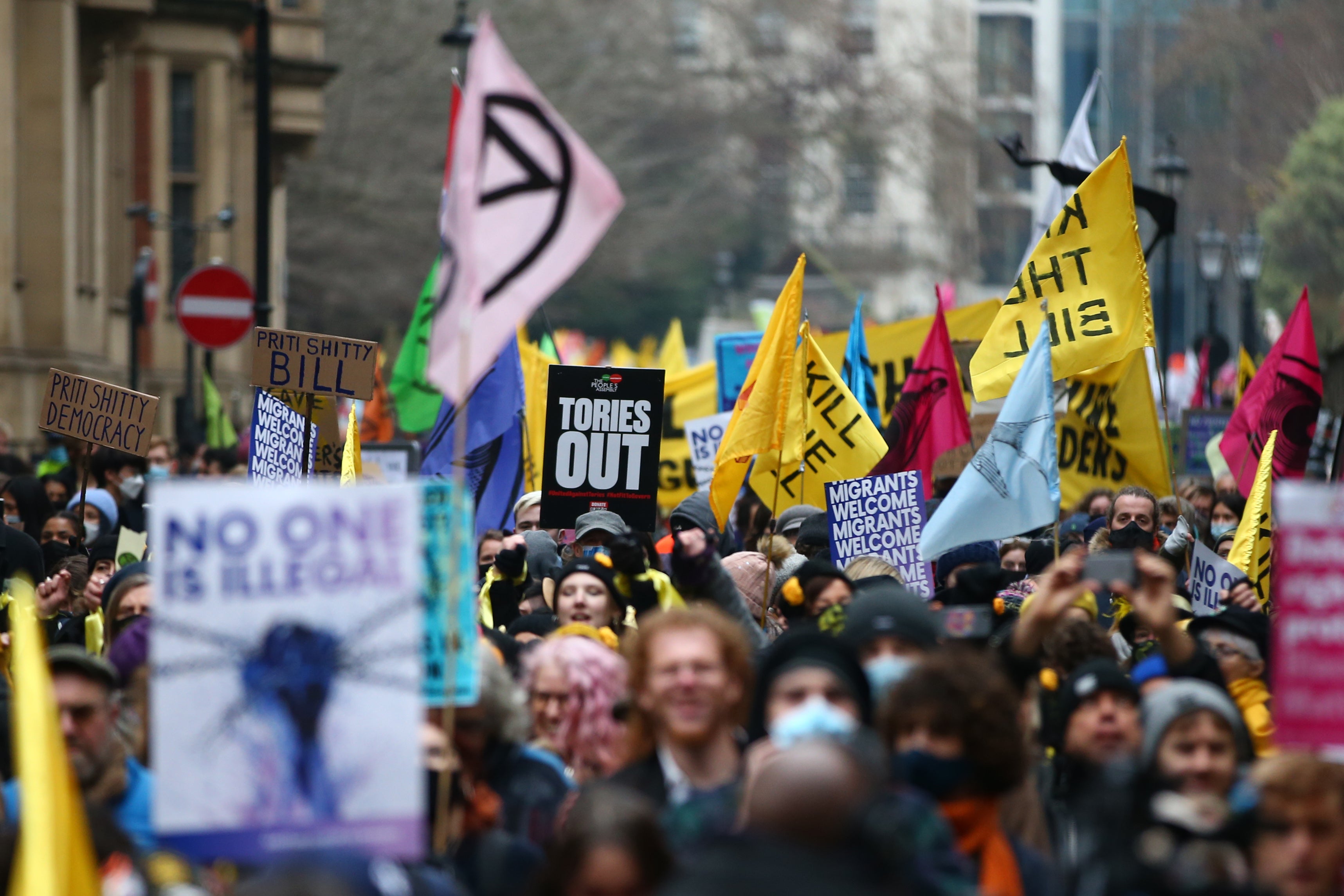
Amnesty International UK said: “The bill will do the exact opposite of what ministers claim, allowing smugglers to thrive. It will only increase the reliance of people, already vulnerable to exploitation, upon the gangs that remain the sole source of any prospect that people may have to ultimately escape their situations of insecurity, exploitation and deprivation by reaching a place of safety.”
But what created most opposition to the bill was the addition of Clause 9 last November which would allow the Home Secretary to remove a person’s UK citizenship without having to notify them if she thought it was in the interests of national security, diplomacy or “otherwise in the public interest”.
Depriving people of their citizenship isn’t new; the government has been able to do it for more than a century. In recent years it has been used against British jihadists joining Isis in Syria. Shamima Begum, who travelled to join Isis at 15, is arguably the tactic’s most high-profile target. But what is new is the removal of the requirement for the Home Secretary to notify a person of the intention to deprive them of their citizenship, because if you don’t know it’s happened, you can’t challenge the decision in the courts.
According to Article 15 of the 1948 Universal Declaration of Human Rights, to which the UK is a signatory, everyone has the right to a nationality, and no one shall be arbitrarily deprived of it. However, past governments have side-stepped this provision where a person has dual nationality or where their parents were born in another country – even if they have never been there or have no other links to it.
This means that if you have committed a crime or are deemed a risk to national security or a Home Secretary decides it would be in the public interest to deprive you of your citizenship – and you happened to have parents from a third country – then you could be secretly stripped of your nationhood and packed off to, say, Pakistan or the Caribbean before you could say “Windrush”. This could not happen if you were indigenous and white but, according to an analysis by the New Statesman, Clause 9 could affect the citizenship rights of up to 6 million people in England and Wales, including two out of five people from non-white ethnic backgrounds.
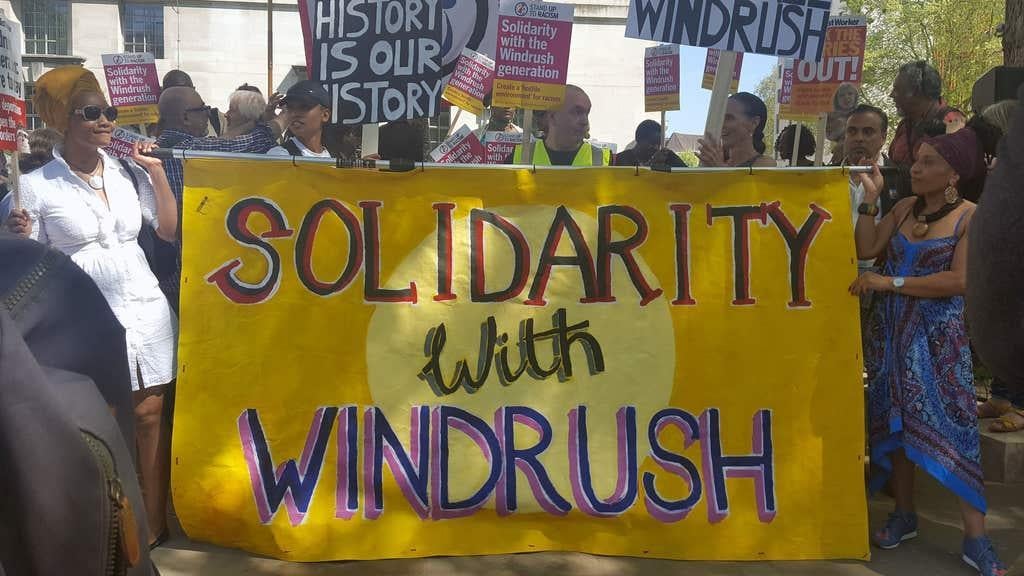
The government insists the proposals are aimed only at dangerous criminals or terrorists, but critics argue that the policy has echoes of the kinds of policies that resulted in the Windrush scandal.
Frances Webber, the vice-chair of the Institute of Race Relations, said: “This amendment sends the message that certain citizens, despite being born and brought up in the UK and having no other home, remain migrants in this country. Their citizenship, and therefore all their rights, are precarious and contingent. It unapologetically flouts international human rights obligations and basic norms of fairness.”
There are more concerns that ethnic communities could also be disproportionately impacted by the third piece of controversial legislation, the Elections Bill, which would make it mandatory for people to show photo ID at polling stations to combat election fraud – even though it is extremely rare. Thirty-two million votes were cast at the last general election, but there were only six proven cases of voter fraud, leading to the suggestion that the government is engaged in US-style voter suppression.
While providing photo-ID might not seem too much to ask of voters, according to the Electoral Commission around 3.5 million registered voters don’t have such ID. For example, 47 per cent of black people don’t have a driving licence, compared with just 26 per cent of white people. According to campaigners, people without photo-ID are most likely to include the homeless, people from ethnic minorities, the disabled and those living in poverty, potential voters who might arguably be more likely to favour parties with left-leaning policies.
The government argues that 98 per cent of the population already has photo-ID, and it says it has plans to allow local authorities to issue special voter ID cards, but research by the Cabinet Office found that 42 per cent of people without photo ID would not apply for one.
Last month, the Commons Public Administration and Constitutional Affairs Committee criticised the reforms. Members said they feared that “a voter ID requirement will introduce a barrier preventing some people from exercising their vote” and pointed out that when photographic ID was introduced in Northern Ireland in 2003 “the turnout at the 2004 Northern Ireland assembly elections dropped by 2.3 per cent as a direct consequence”.
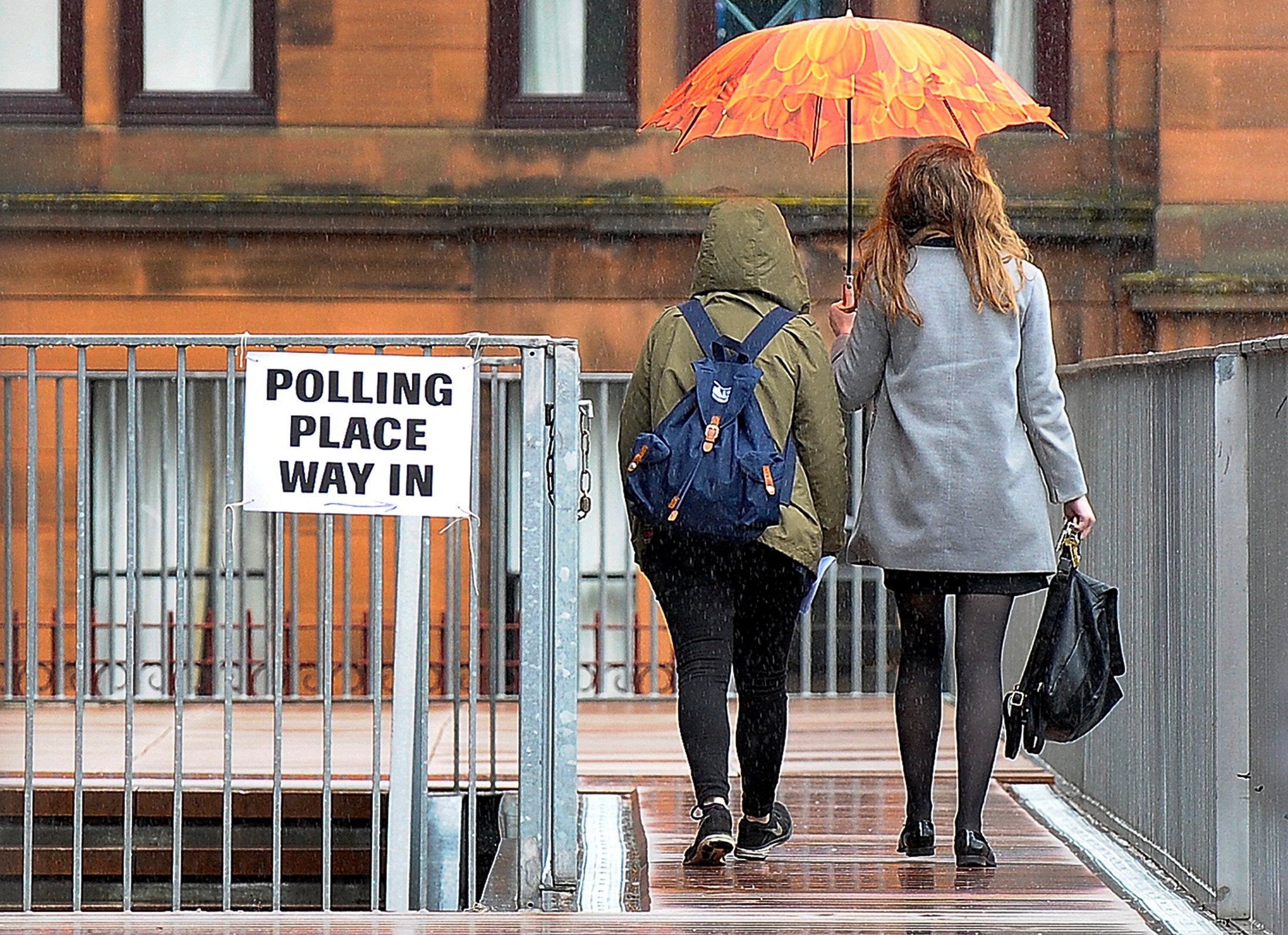
The chair of the committee, William Wragg, said: “While seeking to secure UK elections from potential voter fraud is a noble cause, we remain unconvinced that the scale of the problem justifies the solutions as they have been put forward. When people can be blocked from voting because they have incorrect documentation, have misplaced it or they have none, we must make doubly sure that the costs of the measures are commensurate with the risk.”
The committee also expressed concern over sections of the bill that would bring the Electoral Commission – which oversees UK elections – under closer parliamentary scrutiny. Critics argue this could have an impact on the commission’s independence. Members of the committee have now called upon the government to pause the progress of the legislation pending a thorough consultation process, which they say was lacking before the bill was introduced.
“Any government proposal which might directly or indirectly influence the independent regulator over its operations and decision-making will invite suspicion, especially when plans have been drawn up behind closed doors,” said Mr Wragg. “The Electoral Commission must be impartial both in practice and in the public perception if it is to credibly maintain the integrity of our electoral system.”
Michela Palese, Research and Policy Officer at the Electoral Reform Society, said of the bill: “Far from improving our democracy, this confused mix of policies risks locking millions out and handing increased powers to ministers over our elections. There has been little in the way of meaningful consultation on many of the most dangerous provisions in this bill. Last-minute amendments also mean key bits of this legislation have yet to receive any proper scrutiny within parliament. Ministers must take the findings of this report as an opportunity to pause and rethink.”
If the Human Rights Act is replaced with a Bill of Rights weighted more in favour of the state than its citizens, then that would spell an end to freedom and fairness
So far, so depressing, but the government hasn’t finished meddling with your rights just yet. Last month, Justice Secretary Dominic Raab launched a consultation paper designed to keep the Conservatives’ manifesto pledge of repealing the Human Rights Act and replacing it with a UK Bill of Rights.
The Human Rights Act was introduced by Labour in 1998 and incorporated the articles of the European Convention on Human Rights. The right, and Brexiteers in particular, have long taken umbrage at judgments arrived at by the European Court of Human Rights in Strasbourg, which they feel undermine UK law. They frequently point to Article 8 of the Convention – which enshrines the right to family life – preventing British courts from deporting dangerous and violent criminals. They also argue that the right to privacy, also under Article, has come to outweigh the right to freedom of speech and a free press, enshrined in Article 10.
Raab’s consultation paper proposes to change the balance of this – even though individuals may still seek redress at the court in Strasbourg. It also contains proposals to have a “permissions stage” during proceedings, to whittle out “frivolous” cases, but these, too, could still go to Strasbourg.
The proposals would enshrine the British right to a jury… but that wasn’t under threat anyway. They would also offer protections against British troops being prosecuted for human rights violations abroad. And, controversially, Raab’s proposals would offer protections to public authorities such as the police and government departments from being subjected to legal challenges using human rights arguments.
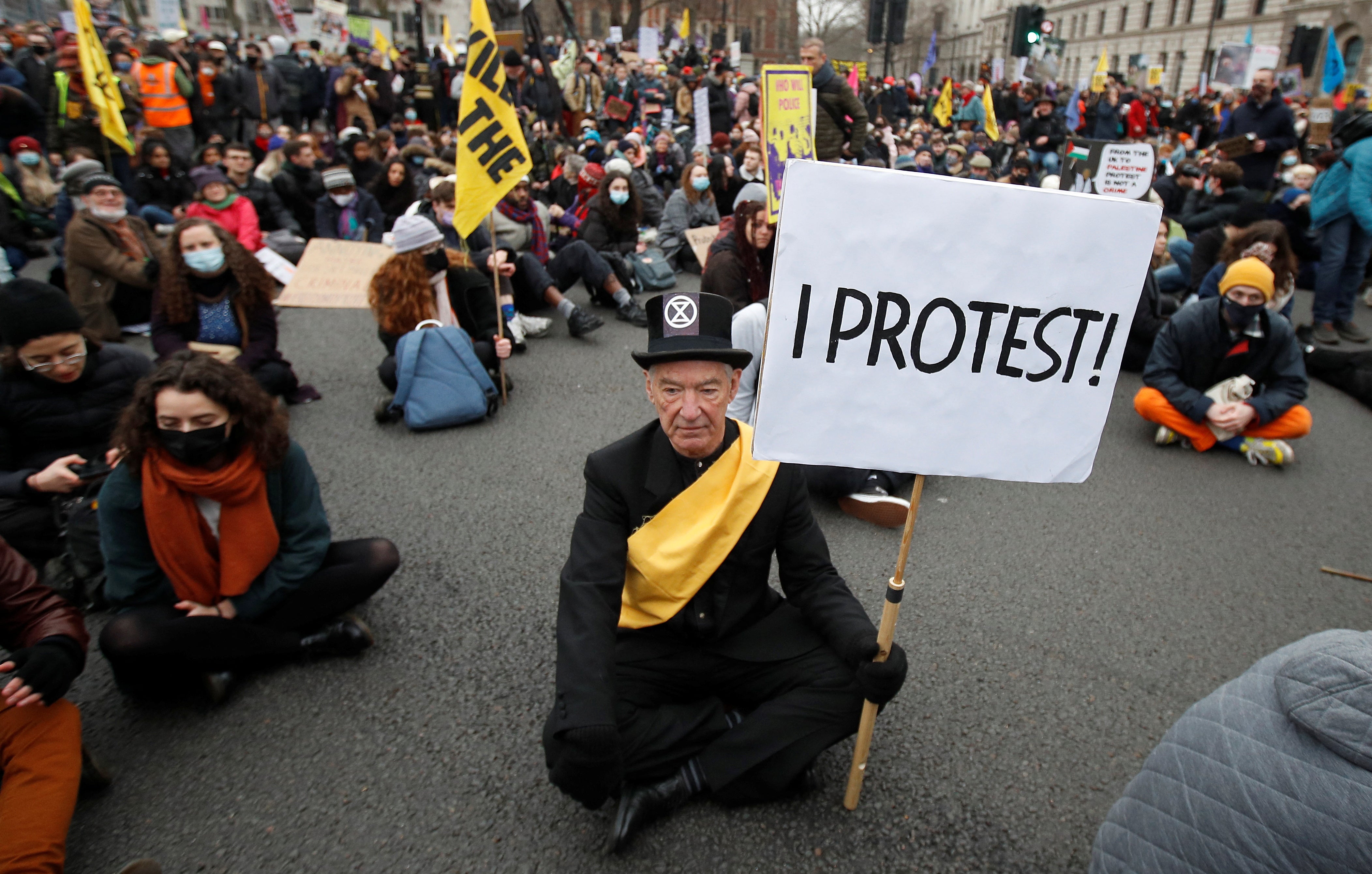
Just how, on top of the bills already going through parliament, all of this would affect you remains to be seen, but already it has come in for a mountain of criticism. Sacha Deshmukh, the chief executive of Amnesty International, said: “If ministers move ahead with plans to water down the Human Rights Act and override judgments with which they disagree, they risk aligning themselves with authoritarian regimes around the world.”
Prof Philippe Sands QC, who sat on the 2013 commission on a bill of rights, said: “The concern is that this will mark a further step in the government’s eager embrace of lawlessness, undermining the rights of all individuals, the effective role of British judges and the European court, and the devolution settlement into which the Human Rights Act is embedded.”
Conor Gearty, Professor of Human Rights Law at the London School of Economics, described the proposals as “incoherent” and added: “On the one hand, the government preaches human rights around the world, insisting that various countries of whose conduct they disapprove adhere to them, with Liz Truss playing the role of a latter-day Lord Palmerston, just as Mr Raab did when he was Foreign Secretary. We cannot pause here to reflect on the absurdity of this mid-ranking, rather friendless country barking instructions at the likes of China and Russia because we must move briskly on to an even greater silliness – the fact that in the Tory vision of the world, the only people who can’t have human rights are the British.”
The government has made it clear that it will next set its sights on the legal right to Judicial Review, by which ordinary citizens can challenge government decisions in the courts. If all of the above bills are passed, and if the Human Rights Act is replaced with a Bill of Rights weighted more in favour of the State than its citizens, then that would spell an end to freedom and fairness – indeed Britishness – as we know them. And it would be a mistake not to worry about this today, because what we do today determines how we might live tomorrow.
As former Conservative prime minister (and home secretary) Theresa May said during a debate on the Police, Crime, Sentencing and Courts Bill: “It is tempting when home secretary to think that giving powers to the home secretary is very reasonable – because we all think we’re reasonable. But, actually, future home secretaries may not be so reasonable.”
Join our commenting forum
Join thought-provoking conversations, follow other Independent readers and see their replies
Comments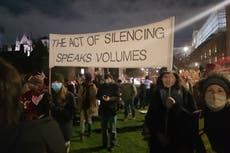



Bookmark popover
Removed from bookmarks